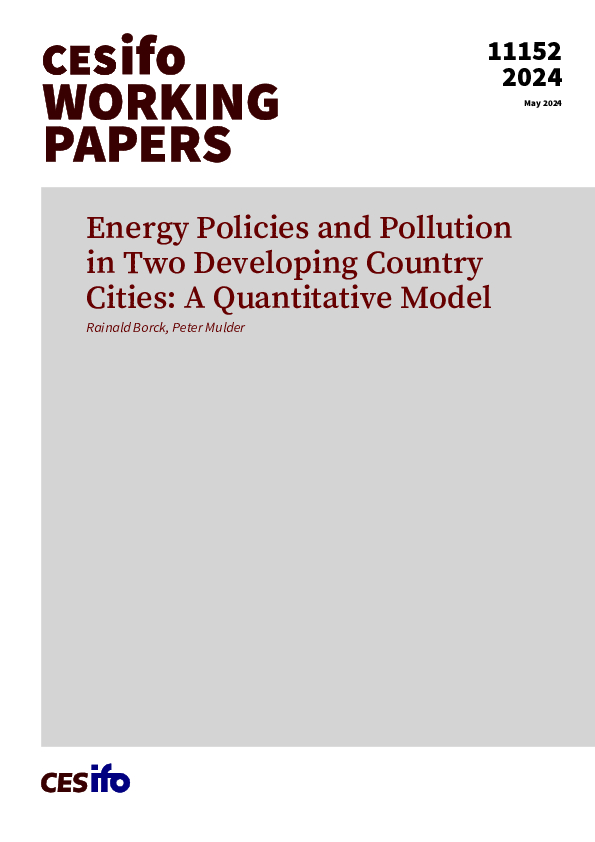Energy Policies and Pollution in Two Developing Country Cities: A Quantitative Model
CESifo, Munich, 2024
CESifo Working Paper No. 11152

We study the effect of energy and transport policies on pollution in two developing country cities. We use a quantitative equilibrium model with choice of housing, energy use, residential location, transport mode, and energy technology. Pollution comes from commuting and residential energy use. The model parameters are calibrated to replicate key variables for two developing country cities, Maputo, Mozambique, and Yogyakarta, Indonesia. In the counterfactual simulations, we study how various transport and energy policies affect equilibrium pollution. Policies may be induce rebound effects from increasing residential energy use or switching to high emission modes or locations. In general, these rebound effects tend to be largest for subsidies to public transport or modern residential energy technology.
Resources and Environment
Energy and Climate Economics